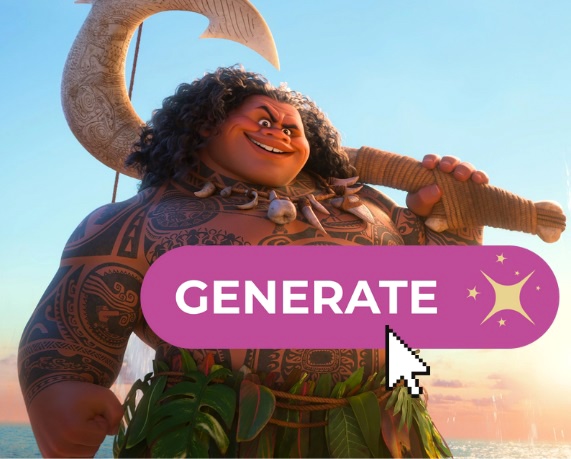No Mau-AI for Moana, Disney Scraps AI-Generated Characters in Upcoming Films
Disney ditches deepfakes, you're welcome?
A new report from The Wall Street Journal reveals that Disney has reportedly scrapped plans to use artificial intelligence for characters in two of its upcoming films, Moana and Tron: Ares. The company's decision was reportedly influenced by concerns over potential bad publicity and questions surrounding the ownership of AI-generated content.
What’s Happening:
- Disney reportedly cancelled the use of AI in two high-profile movies.
- For the live-action remake of Moana, the studio considered using AI to create a deepfake of Dwayne "The Rock" Johnson’s face layered onto a body double.
- Although Johnson approved the idea, Disney reportedly worried about not being able to claim full ownership of the film's elements if parts were generated by AI.
- In a bid for a "buzzy marketing strategy," executives for the upcoming Tron: Ares sequel reportedly pitched an idea to create an AI-generated sidekick character. This concept was ultimately scrapped, with internal sources citing concerns that the company "couldn't risk the bad publicity."
- Disney has a history of protecting its intellectual property, and earlier this year, it joined NBCUniversal in suing AI company Midjourney for copyright infringement.
The Legality of AI:
- Legal questions around the use and creation of artificial intelligence continue to swirl, particularly regarding copyright and ownership. This is a complex area, and while recent legal rulings have attempted to provide clarity, many questions remain unanswered.
- A core principle of U.S. copyright law, as affirmed by courts, is that a work must have a human author to be eligible for protection. This means that a work created entirely by an AI without any significant creative input from a human is not considered copyrightable.
- However, if a human uses AI as a tool and makes substantial creative contributions (e.g, editing, arranging, or creatively modifying the AI's output) the human's contributions may be protected by copyright.
- Another major legal battle is over the training data, since many generative AI tools have been trained on vast amounts of data scraped from the internet, often including copyrighted material.
- Copyright holders, including Disney, are suing these AI companies, arguing that the use of their work without permission or payment constitutes copyright infringement.
- The AI companies, in turn, are often arguing that this use falls under the "fair use" doctrine, a legal concept that permits limited use of copyrighted material without permission. The courts have yet to provide a definitive ruling on this issue.
- Because of these concerns, some companies are taking a different approach. For instance, MoonValley AI has released "commercially safe" AI models, like their Marey video generator. These models are reportedly trained exclusively on licensed, high-resolution footage, ensuring that the output is not derived from potentially infringing sources and is safe for commercial use by filmmakers and studios.
More Disney Film News:
- Magic Revealed: How ILM's Real-Time Tech Brought Stitch to Life for Fans
- Photos/Video: Disney+ Dive-In Theater with Swimply Presents "Honey, I Shrunk The Kids"
- Four Surprise Faces Make a Cameo in "The Fantastic Four: First Steps"
- ZOMBIES 4: See the Record-Breaking Numbers Behind Disney+'s Latest Hit
- "Freakier Friday" Band Pink Slip Performs "Take Me Away" at World Premiere
Laughing Place recommends MouseFanTravel.com for all your Walt Disney World travel planning
Fill out the form below for a free, no obligation quote from MouseFanTravel.com



